Nutrients Good for the Brain
The brain oversees most of the body’s functions, including nerve impulse transmission, maintaining body temperature, and functions of memory and learning. To function, it thus has multiple needs.
Diet helps ensure the majority of the nutritional intake needed for the organ’s proper functioning. Here is the list of essential elements for good brain function!
Essential Fatty Acids for the Brain
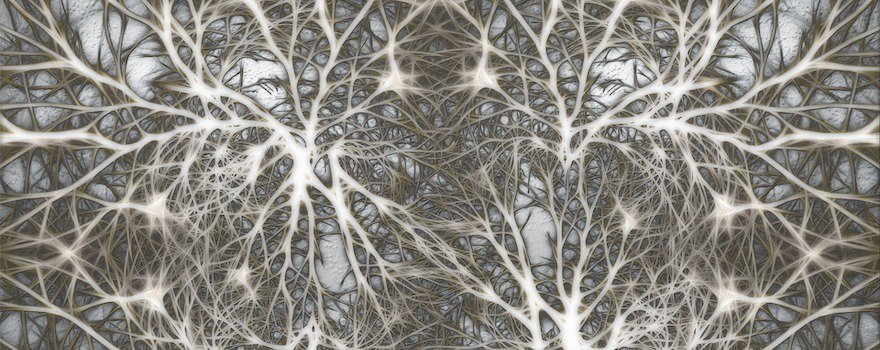
The brain is an organ primarily composed of fat. In fact, it contains 50% lipids. Neurons, nerve cells that ensure the transmission of nerve impulses, are surrounded by a myelin sheath. Myelin alone contains 70% of the lipids needed for the construction and maintenance of nerve cells.
This better explains why fatty acids are essential to brain construction and function maintenance. Indeed, a deficiency in fatty acids may lead to decreased cognitive performance and mental fatigue. However, to ensure effective nutritional intake, it is crucial to prioritize good fatty acids such as omega-3 and omega-6.
Glucose: The Brain’s Fuel

The brain consumes about 40% of the body’s carbohydrate intake. It consumes large amounts of glucose to function. To ensure glucose intake, it is preferable to favor foods with a low glycemic index. Sugar intake is thus ensured over time. During exams or long-lasting work, one should not hesitate to eat to avoid fatigue hits and loss of concentration.
Prioritize Protein-rich Foods
The body does not store plant and animal proteins provided by food. However, the body’s protein needs are rather significant (70 g/day for an adult). Composed of amino acids, proteins constitute the basic material for the construction and repair of brain cells. Therefore, they must be consumed daily. Meats, eggs, and dairy products are rich in proteins and beneficial for brain functions.
Before an exam, don’t hesitate to increase portions of protein-rich foods.
Indeed, favoring these nutrients helps activate certain neurotransmitters (such as dopamine). The functions of concentration and memory are thus stimulated and help improve intellectual performance during the exam.
The Role of Trace Elements
Helping to reduce anxiety, limit neurological fatigue, avoid stress and nervousness, trace elements are essential to the brain’s proper functioning. The brain needs iron, zinc, magnesium, iodine, and copper to function optimally. This involves maintaining and enhancing cognitive functions, memory and concentration, learning, controlling body functions, and nerve impulse transmission.
The Importance of Vitamins
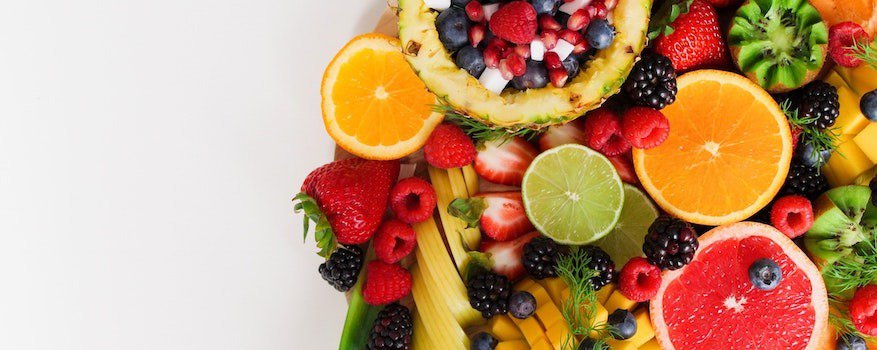
One cannot speak of nutritional intake without mentioning the vitamins, present in large numbers in fruits and vegetables. In regards to our brain heritage, vitamin intake is also essential. B-group vitamins: B1, B6, B9, and B12 have a positive effect on the brain’s cognitive functions. They are involved in acetylcholine synthesis (neurotransmitter). Consuming foods containing these vitamins helps preserve our brain functions.
Vitamin B1 is found in asparagus, mushrooms, butter, cauliflower, oranges, sesame or sunflower seeds.
Vitamin B6 can be found in pistachios, garlic, potatoes, rice, hazelnuts, avocado, banana, cod, salmon.
Vitamin B12 is found in seafood, as well as in beef, mackerel, octopus, calf liver, lamb, or yogurt.
Fighting Brain Aging with Antioxidants
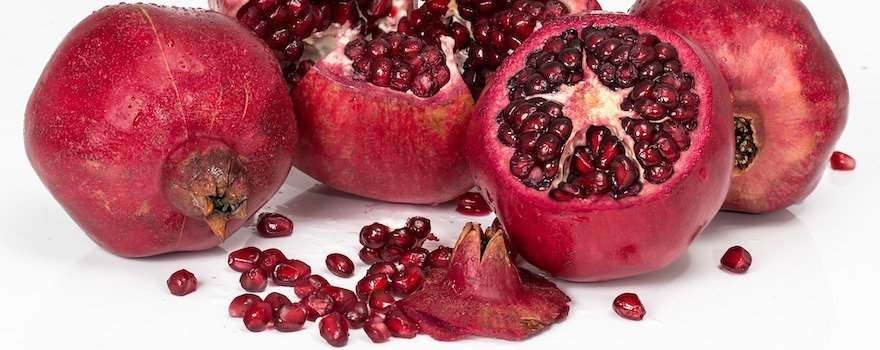
They combat the accumulation of free radicals, especially at the brain level. In this regard, they help fight the aging of the organ. They also act on cerebral blood circulation by improving it.
Ensuring Oxygen Intake
The brain consumes about 20% of the body’s oxygen reserves. To function well, oxygen intake must be favored. Oxygen is transported via the bloodstream, through hemoglobin which requires iron to ensure this transport.
Consuming red meat, black pudding, liver (calf, poultry) ensures the iron intake necessary for the body.
Boosting blood circulation at the brain level, through the consumption of foods rich in antioxidants, improves oxygen intake, thereby maintaining and preserving brain functions.
12 Foods Good for the Brain
To be intellectually efficient on a daily basis, the brain needs nutrients and elements it requires. A minimum of information is necessary, to make an effective selection and compose appropriate menus each day. Here is a list of 12 foods good for our brain.
Fatty Fish
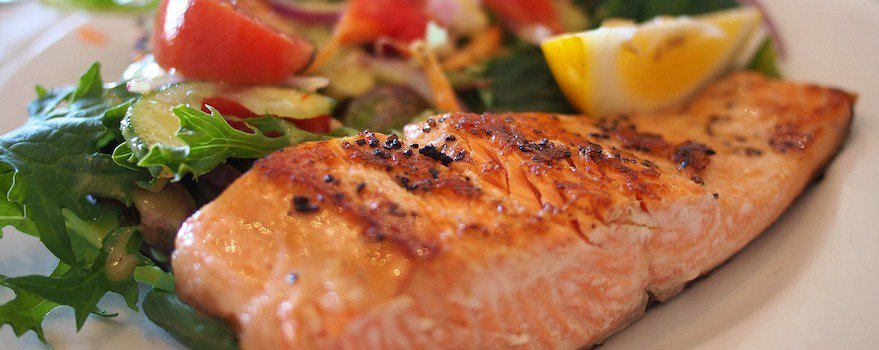
Fatty acids, notably omega 3, are beneficial for the brain. The foods to consume to ensure a sufficient intake of omega 3 are fatty fish: sardines, smoked herrings, salmon, tuna, mackerel. To add to the good news, it is worth knowing that some fatty fish, like salmon, also positively affect mood by combatting depression.
To be consumed two to three times a week to ensure sufficient intake. To avoid overloading with fats, it is preferable to cook them steamed, poached, or baked. Indeed, this method of cooking is “lighter” than pan-frying, which requires the addition of fats. If you prefer cooking tuna, mackerel, or salmon in a pan, choose a non-stick pan, if possible.
Vegetable oils
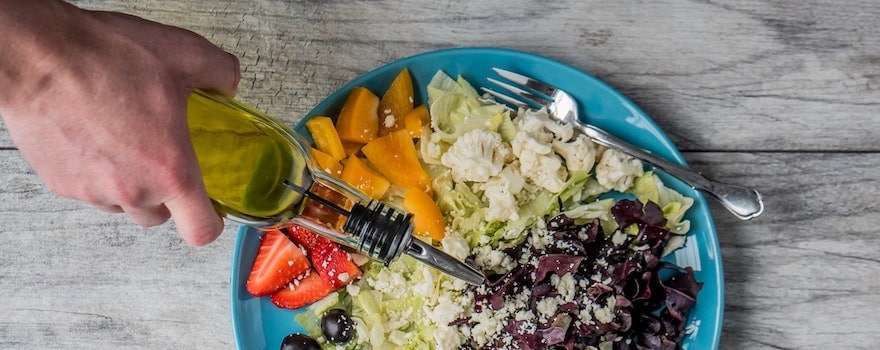
We find fatty acids in certain vegetable oils: omega 3 in flaxseed oil, rapeseed oil, walnut oil. Omega 6 is found in sunflower oil, walnut oil, or wheat germ oil, for example. These oils are made from plants or nuts. They have different nutritional properties compared to animal oils. They are not used in the same way in cooking. For instance, vegetable oils are less suited for deep frying or being heated.
To be consumed in moderation nonetheless. Vegetable oils are ideal for seasoning salads, but they are very high in calories. Care must be taken with the dosage when cooking delightful dishes.
Note: Omega 3 deficiencies lead to memory problems and cognitive function disturbances. To prevent this oversight, just add fatty fish or vegetable oils to your shopping list.
Starchy foods and legumes
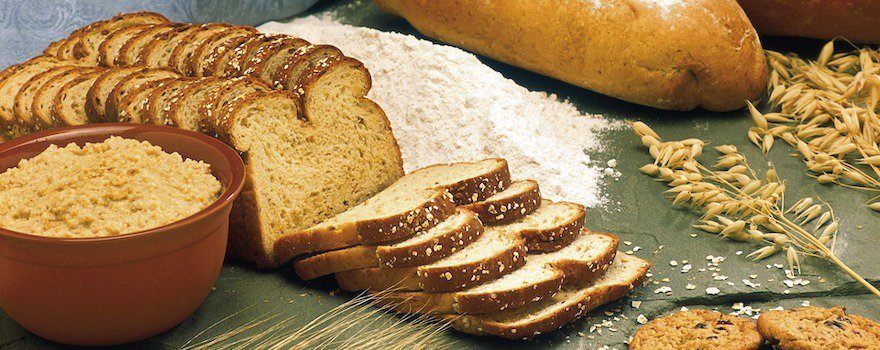
As we have seen, glucose is essential for the proper functioning of the brain. However, this does not mean we should consume foods high in fast sugars to ensure essential intake. Indeed, foods that are too high in sugar may saturate the body. The latter triggers an insulin secretion to lower blood sugar levels, which leads to a slowdown in brain function. The effect is the opposite of what is desired. To ensure an optimal, continuous, and long-lasting glucose supply, it is necessary to favor low glycemic index foods such as starchy foods (pasta, bread: choosing whole grains is preferred), fruits, or legumes (lentils, chickpeas, white beans).
To ensure adequate consumption, favor bread for breakfast (consume a quarter of a baguette) with a fruit, a dairy product, and lightly sweetened tea or coffee. Starchy foods and legumes are suitable for lunch and dinner. Consume a serving of starchy food accompanied by a serving of vegetables at both meals.
Spinach and green vegetables

Vitamin B9 contained in spinach, lamb’s lettuce, watercress, broccoli, and rosemary stimulates blood circulation in the brain. Its properties act directly on memory and concentration by stimulating them.
To benefit from the benefits of vegetables such as spinach and broccoli, it is better to buy them fresh and cook them in water. However, boiling food results in a loss of about 40% of nutrients and vitamins. Steaming helps limit these losses. Watercress and lamb’s lettuce are enjoyed in salads, with a light vinaigrette preferably. For those not afraid of new experiences, it’s important not to neglect vegetable juices made with a juice extractor. Maximum vitamin content guaranteed!
Seafood

Trace elements are found in seafood: cockles, mussels, oysters, shrimp… Seafood is also rich in vitamin B12 and proteins (including lysine, which is involved in synthesizing another neurotransmitter: dopamine).
Seafood is generally prepared in a pot. They are boiled in water for 4-5 minutes (cockles), about twenty minutes (whelks), and ten minutes (mussels). Served cold (whelks, shrimp, crab, lobster), they can be consumed with a lemon sauce or a light mayonnaise, which is lighter than classic mayonnaise.
Eggs

Eggs are rich in amino acids, lecithin, and phospholipids. These elements are involved in constructing nerve cell membranes. Eggs also contain phosphatidylcholine, a lipid necessary for synthesizing acetylcholine. This neurotransmitter is essential for the transmission of nerve impulses. It also plays a role in the memory and learning process. Eggs are foods good for memory. They are high in cholesterol, so limit consumption to twice a week.
They can be consumed as an omelet, hard-boiled, or fried. Preferably eaten in the morning or evening.
Red fruits and avocado
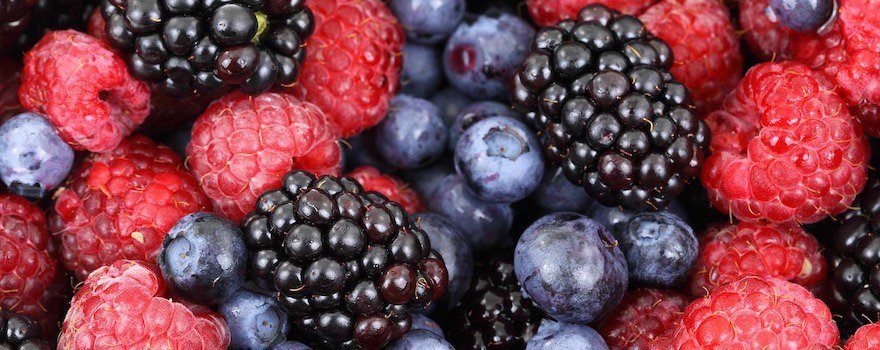
Antioxidants fight against the accumulation of free radicals in the brain. Free radicals, however, contribute to accelerating the aging of brain cells. Consuming berries such as strawberries, blackberries, blueberries, redcurrants, raspberries, and blackcurrants helps to slow down the effects of aging on the brain. They are very rich in vitamin C and antioxidants. Eating them fresh or as compotes (low in sugar), as dessert, lunch, and dinner allows one to enjoy their benefits. It is preferable to avoid jams that are very high in fast sugars (which contribute to weight gain). For jam enthusiasts, it’s important to check the sugar content of the product before purchasing.
The avocado is also a brain-friendly food. It is rich in vitamin E, which has strong antioxidant action. The anti-aging food par excellence, avocado is also rich in elements that have a positive effect on mood. It is beneficial for mental health!
Dark Chocolate

Dark chocolate is rich in magnesium. This trace element is involved in the synthesis of serotonin (known as the happiness hormone). Its consumption results in a sensation of well-being. It contains elements that stimulate brain functions after consumption. Indeed, chocolate is rich in theobromine and theophylline, two substances that have a toning and stimulating effect on the brain. This food is good for concentration.
It also contains antioxidants, which, as we know, help combat brain aging.
Warning: chocolate is very high in calories. Consume in moderation, and prioritize dark chocolate, or even better, raw cocoa!
Coffee

Consuming coffee increases alertness and concentration. Coffee contains caffeine (which triggers the release of dopamine, a neurotransmitter). During study sessions, drinking one to two cups a day can help in working longer.
Do not consume excessively as problems may arise (nervousness, sleep disorders…). It’s better not to overindulge and not exceed the recommended daily doses (200 to 300 mg/day, or 2 to 3 cups of coffee per day) to benefit from effective brain stimulation.



